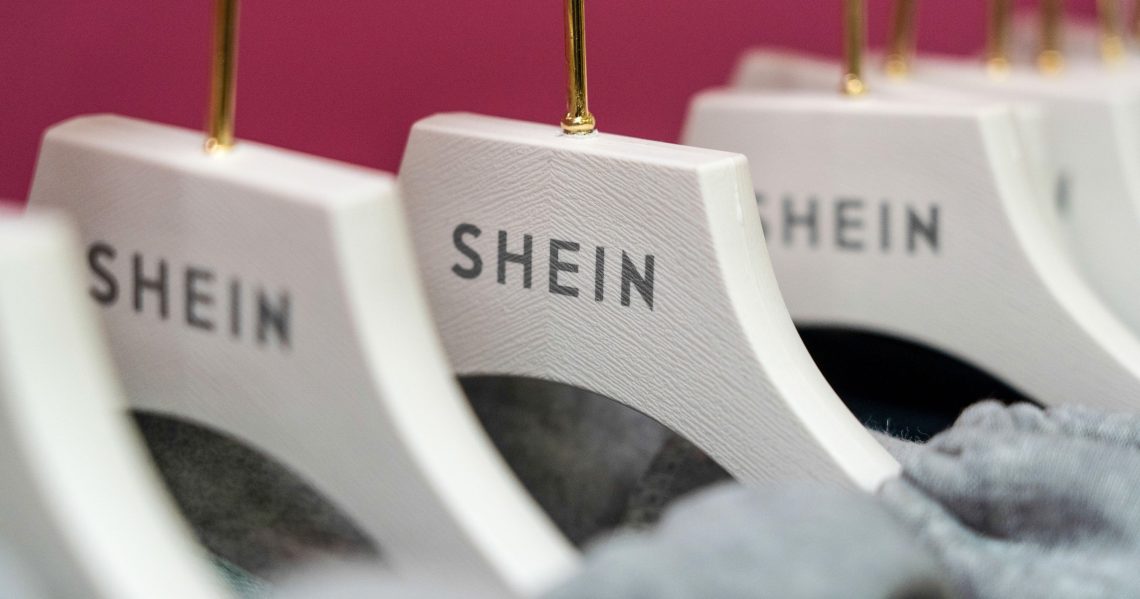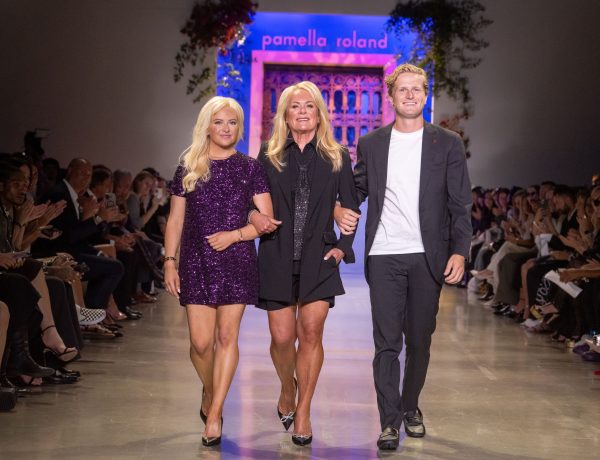This week, six fashion influencers found themselves the subject of internet scrutiny. The group had gone on a trip to Shein’s “innovation center” in Guangzhou, China, and the videos many posted to social media of clean facilities, spacious work areas, and happy employees painted a very different picture than previous reporting on the fast fashion brand’s questionable production practices. In 2022, a Channel 4 investigative report found that workers at Shein factories were paid as little as 2 cents per piece while working as long as 18 hours a day. More recently, the United States Congress questioned whether the brand’s supply chain includes forced labor. In response, the brand has often deflected, saying they will increase auditing and training.
This trip, which has gone viral, with many of the posts since removed, isn’t just about Shein and the ways in which a company shapes a narrative about its brand or does damage control. After all, to some extent, all companies do this; it’s PR. It’s also about the evolving role of the fashion influencer in a time when labor and sustainability issues are finally getting the necessary attention they deserve. Should content creators be held responsible for the actions of the brands they work with? And do they have an obligation to their audiences to act as activists or journalists as well?
While the idea of influencing as a job in fashion has taken many forms over the years, whether it be a blogger or It Girl, the social media personality-turned-fashion ambassador is a newer phenomenon. For creators who are subject to the whims of the algorithm, a knighting from a major brand through a campaign, trip or collaboration is essential to maintaining and elevating themselves within the fashion space.
A big designer dubs you front-row material, and you have the endorsement to wear their brand to appearances and events. Others rely on brand deals to make a living. Going on a trip paid for by a brand in exchange for positive coverage or a paycheck is often a normal part of these relationships. The fact that this was a factory tour that hosted people who aren’t experts is what made it stand out.
Fashion today is in an overproduction crisis, and influencers have played a big role by perpetuating trends and overconsumption.
Ayesha Barenblat, founder of Remake
Promoting a brand by going to a beauty lab or attending a party for a fashion brand’s new store is one thing, but making content on something as technical and nuanced as the inner working of a supply chain requires a discerning eye and expertise in how factories should be run — expertise that the influencers on the Shein trip didn’t have. And weren’t necessarily aware that their followers would expect of them until it was too late.
Following the fallout, one press trip attendee, Dani Carbonari, known as Dani DMC (who has worked with Refinery29 in the past), said in a video that she should “have done more research” and that what the company told her on the trip felt legitimate to her at the time. In a statement to Refinery29 in response to the backlash, a Shein spokesperson said, “Their social media videos and commentary are authentic, and we respect each influencer’s perspective and voice on their experience.”
In a second video, Carbonari said she had terminated her contract with the brand and was taking time to evaluate her role in the fashion industry. Refinery29 reached out to Carbonari for comment but, at the time of publishing, hasn’t heard back. We also reached out for comment to the other creators who attended, Aujené, Fernanda Campuzano, Kenya Freeman, Marina Saavedra, and Destene Sudduth.
Fernanda Campuzano told Refinery29: “I would like to make it abundantly clear that I was invited to the Shein trip as a fashion designer, not an influencer. I was invited because I’m one of the top-performing designers on the Shein X program,” she wrote in an email response, adding she’s been a designer for 10 years and has worked with many brands. (The Shein X program is the brand’s collab with emerging designers.) Added Campuzano: “A trip to an overseas factory and office is not unusual for a designer to do. If you look at my social media, you’ll see I never posted anything in regards to the innovation center, nor am I trying to influence people’s opinions on the brand.”
Whether it’s fair or not to the creators who may not have the necessary knowledge about the issue at hand, there is a burden of responsibility here. Especially because we live in an era where most young people trust people on social media over news outlets. Research by the Reuters Institute for the Study of Journalism, part of Britain’s University of Oxford, found that 55% of Tiktok and Snapchat users and 52% of Instagram users get their news from creators on social media compared to 33% who rely on journalists at traditional media outlets. Another study found that “84% of Gen Z has purchased products in direct response to social media content.”
Conflating the work of an influencer and a journalist is dangerous for our information ecosystem.
whitney bauck
According to Whitney Bauck, a journalist for the New York Times and Atmos and a Refinery29 contributor, this is where the issue lies. “Conflating the work of an influencer and a journalist is dangerous for our information ecosystem. When we let influencers be the arbiters of truth, we run into many problems,” Bauck said. “There isn’t any accountability. There aren’t best practices or a code of conduct.”
Ayesha Barenblat, founder of Remake, a nonprofit organization focused on advocacy for garment workers, explains that because of the power influencers hold with their audiences, they need to be discerning about who they are working with. “Fashion today is in an overproduction crisis, and influencers have played a big role by perpetuating trends and overconsumption,” she explained. (Which to be fair, fashion publications like Refinery29 are also guilty of participating in.)
Rather than continue this cycle, Barenblat believes that “influencers can use [their] platform to build a kinder and more accountable fashion industry.” She noted that she’s seeing more influencers use their accounts to support the ethical fashion movement, highlighting the PayUp and Garment Worker Protection Act campaigns, which promote fair working conditions for garment workers through social media. “It is heartening to see influencers wield their power not just to push products but to lift women [who make up the majority of garment workers] and fight for our planet to remain habitable.”
Putting someone in the role of an activist when brand deals are involved needs to be met with caution as well, Bauck added. “We’re in a time where there is a cultural or social capital that goes along with being seen as an activist, but many people start to step away from that if it’s not going to benefit them anymore.”
That’s why, as the power of fashion content creators grows without accountability to back it up, the viewer must also use caution and carry the conversation forward. Bauck points out that it’s good that this trip made the supply chain part of the conversation about fast fashion in a way that it has never been before, but that it doesn’t necessarily mean much more than that.
She is right — it’s unlikely that this will translate to anything more than a publicity issue for Shein. And even more troubling, these influencers will likely feel the backlash far worse than Shein ever will, especially when it is still one of the world’s most profitable fashion brands in the world.
This article was updated to include a quote from Fernanda Campuzano.
Like what you see? How about some more R29 goodness, right here?




